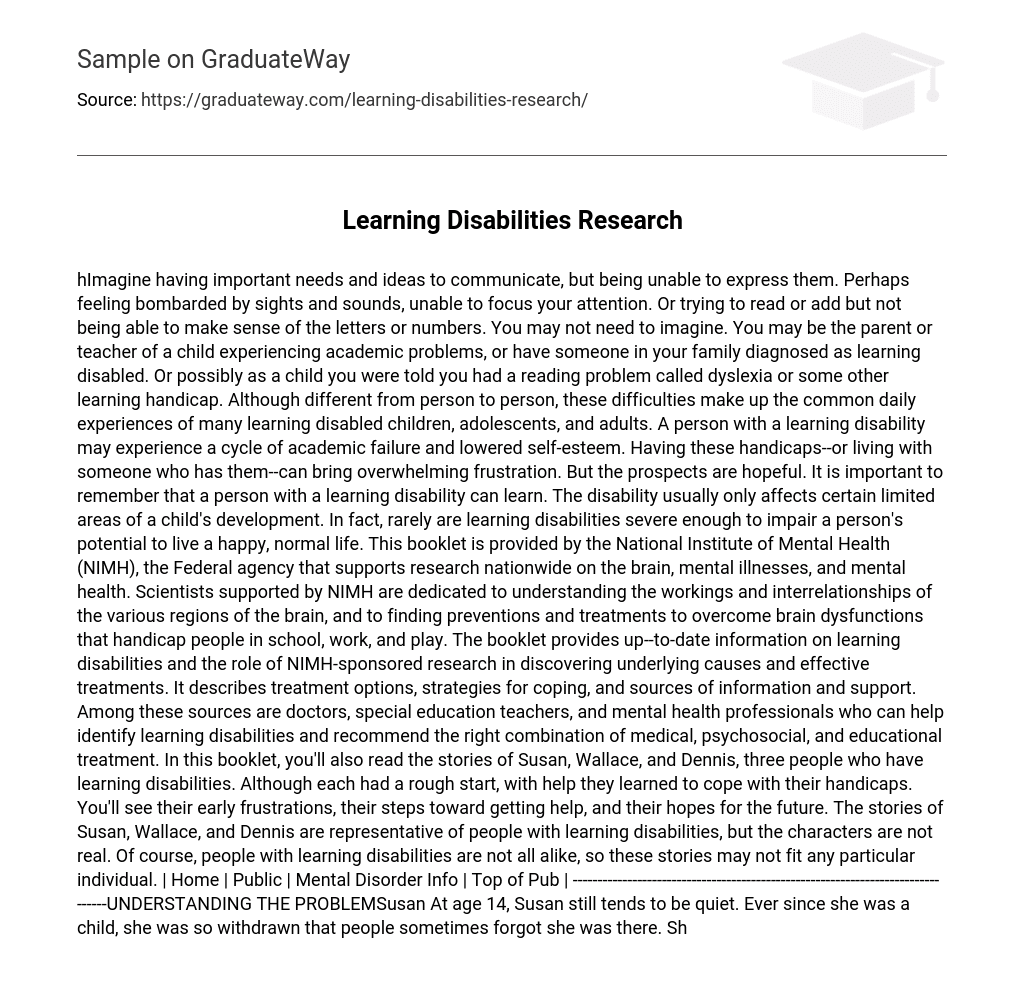Consider the daily routine of a child who faces academic obstacles or a family member who has been diagnosed with a learning disability. These individuals might find it challenging to communicate their basic needs and thoughts, feel overwhelmed by sensory stimuli, and have trouble comprehending letters or numbers.
Individuals with learning disabilities, including dyslexia or other reading-related challenges, often receive this diagnosis in childhood. Although the specific difficulties may vary, they are a shared experience among people of all ages who have learning disabilities.
Individuals with learning disabilities may experience difficulties in school and a decrease in self-assurance, which can be overwhelming for both them and their caregivers. However, it is important to remember that people with learning disabilities have the ability to learn. These disabilities typically affect specific areas of a child’s development but seldom impede their capacity to lead a fulfilling and typical life.
The National Institute of Mental Health (NIMH), a Federal agency, is responsible for creating this booklet. NIMH funds research on the brain, mental illnesses, and mental health nationwide. Scientists supported by NIMH are committed to comprehending the collaborative function of various brain regions and discovering methods to hinder and cure brain dysfunctions that can adversely affect people’s education, employment, and recreational pursuits.
The book let contains current information about learning disabilities and the involvement of NIMH-sponsored research in uncovering root causes and successful treatments. It explains various treatment choices, methods for dealing with difficulties, and resources for information and assistance. These resources encompass medical practitioners, special education instructors, and mental health experts who can identify learning disabilities and suggest the appropriate mix of medical, psychosocial, and educational intervention.
In this book, you will also find the stories of Susan, Wallace, and Dennis, three individuals with learning disabilities. Despite experiencing difficulties initially, they were able to manage their disabilities with assistance. You will witness their early challenges, their journey towards receiving support, and their aspirations for the future. Although the stories of Susan, Wallace, and Dennis serve as examples of individuals with learning disabilities, these characters are fictional. It should be noted that individuals with learning disabilities vary greatly, so these stories may not accurately represent any specific person.
At age 14, Susan is still quiet and withdrawn, often drifting into her own world. She frequently misnames objects when she tries to communicate. She has few friends and often plays with dolls or her younger sister. Reading and math are dreaded subjects for Susan as she struggles to grasp letters, numbers, and symbols. These difficulties have led her to feel terrible about herself, believing that she is intellectually disabled. Similarly, Wallace, who is 46 years old, continues to have difficulties understanding spoken language.
As a child, he struggled with words that sounded similar. His father would repeat things patiently, but when his mother was intoxicated, she would become furious and punish him for not paying attention. Wallace also had trouble speaking clearly, to the point where his teacher in school occasionally couldn’t comprehend him. When his peers taunted him with the term “dummy,” he instinctively resorted to using his fists.





